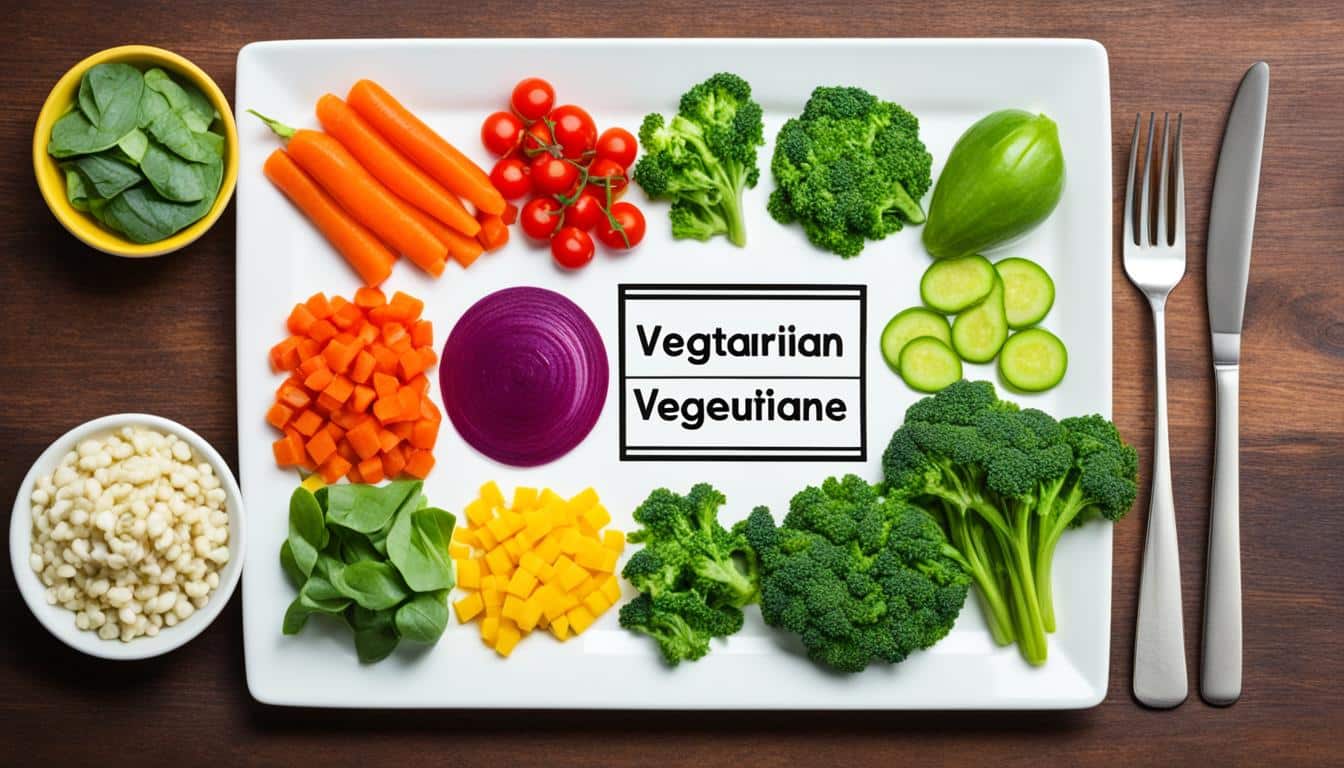
As a health-conscious individual, I have always been interested in exploring different ways to improve my lifestyle. Recently, I embarked on a journey to adopt a vegetarian diet, captivated by the numerous benefits it offers for both my well-being and the environment. Little did I know that this decision would not only lead to positive changes in my life but also open up a world of delicious plant-based recipes and exciting culinary adventures.
My transition to a vegetarian lifestyle began with a simple curiosity about the potential benefits of a plant-based diet. I delved into research, discovering the astounding impact that vegetarianism can have on our health and the planet. From reducing the risk of heart disease and certain cancers to improving immune support, the benefits seemed too promising to ignore.
One of the key reasons I decided to embrace a vegetarian diet was the significant environmental impact it can make. By opting for plant-based foods, I learned that I could contribute to reducing our water footprint and greenhouse gas emissions. It was empowering to realize that my dietary choices could have a positive influence on the world around me.
While the idea of starting a vegetarian diet initially seemed overwhelming, I soon discovered that there are various types of vegetarian diets that cater to personal preferences. Whether one decides to go vegan, vegetarian, pescatarian, or flexitarian, there is a wide range of delicious options to explore.
Curiosity and a desire for a healthier lifestyle propelled me forward on my vegetarian journey. I sought out tips and advice from experienced individuals who had already embraced this way of life. It became evident that starting gradually was key to success. I eliminated red meat, then poultry, and eventually fish, replacing them with nutritious plant-based alternatives that I savored in every meal.
One of the highlights of my vegetarian exploration has been discovering new and exciting foods. Each week, I make it a point to try a new vegetarian recipe, expanding my culinary repertoire and keeping things fresh and exciting. From vibrant salads bursting with flavors to hearty plant-based entrées, I have realized that vegetarianism is anything but dull.
As I continue on my vegetarian diet journey, I have come to appreciate the importance of incorporating plant-based substitutes into my meals. Dairy-free options and meat alternatives have proven to be invaluable in preventing any feelings of deprivation. Finding suitable replacements for foods that I thought I couldn’t live without has made my transition seamless and enjoyable.
While I navigate this new way of eating, I understand the importance of ensuring that my nutritional needs are met. Incorporating protein-rich legumes, nuts, seeds, and fortified foods has helped me stay fueled and healthy. I also seek guidance from a plant-based Registered Dietitian, who provides invaluable advice in creating balanced menus that cater specifically to my dietary requirements.
Now, as I reflect on my journey, I marvel at the positive changes that embracing a vegetarian diet has brought into my life. From improved health outcomes to a deeper connection with nature and a sense of purpose, I am grateful for the transformative power of this lifestyle.
In the following sections, I will share valuable tips for those who are considering starting a vegetarian diet. I will also provide a wealth of delicious and nutritious vegetarian recipes that have become staples in my kitchen. Let’s embark on this exciting vegetarian adventure together and unlock the incredible benefits of a plant-based lifestyle.
Tips for Starting a Vegetarian Diet
Transitioning to a vegetarian diet can be an exciting and fulfilling journey towards a healthier and more sustainable lifestyle. To help you get started, here are some valuable tips to make the process easier:
- Start Gradually: Instead of making drastic changes overnight, take it one step at a time. Begin by eliminating one animal-based product from your diet, such as red meat, poultry, or fish. This gradual approach allows your body and taste buds to adjust smoothly while reducing feelings of deprivation.
- Introduce Nutritious Plant-Based Foods: To ensure a balanced diet, focus on incorporating a variety of nutritious plant-based foods into your meals. Include plenty of fruits, vegetables, whole grains, legumes, nuts, and seeds. These foods provide essential nutrients and help counterbalance the elimination of animal products.
- Embrace Adventure: Transitioning to a vegetarian diet opens up a world of exciting new flavors and culinary experiences. Be adventurous and try different vegetarian dishes each week. Explore international cuisines, experiment with new recipes, and discover the abundance of delicious plant-based options available.
- Consider Vegetarian Substitutes: Incorporating vegetarian substitutes can be a helpful strategy, especially for those who miss the taste and texture of meat or dairy. There is a wide variety of plant-based alternatives, such as dairy-free milk, cheese, and yogurt, as well as meat substitutes made from soy, tempeh, seitan, and legumes. These substitutes can provide familiar tastes and textures while satisfying your cravings.
- Seek Professional Guidance: Consulting a plant-based Registered Dietitian can offer personalized guidance and support during your transition to a vegetarian diet. They can help you navigate menus, plan balanced meals, and ensure you meet your nutritional needs. A dietitian can also address any concerns or questions you may have along the way.
When transitioning to a vegetarian diet, it’s important to pay attention to key nutrients like protein, iron, and vitamin B12. Here are some excellent plant-based sources for these essential nutrients:
| Nutrient | Plant-Based Sources |
|---|---|
| Protein | Legumes (beans, lentils, chickpeas), tofu, tempeh, seitan, quinoa, nuts, and seeds |
| Iron | Spinach, kale, lentils, chickpeas, fortified cereals, tofu, pumpkin seeds |
| Vitamin B12 | Fortified plant-based milks, cereals, nutritional yeast, and B12 supplements (consult a healthcare professional) |
By following these tips and incorporating a variety of plant-based foods into your diet, you can enjoy a vibrant and nourishing vegetarian lifestyle. Embrace the journey and discover the countless benefits of a vegetarian diet for your health and the planet!
Conclusion
Embracing a vegetarian diet offers a wide range of benefits for individuals and the environment. By adopting a plant-based lifestyle, you can promote a healthy and vibrant life, while also contributing to a more sustainable planet.
One of the main advantages of a vegetarian diet is the reduced risk of chronic diseases. Studies have shown that vegetarians have a lower occurrence of heart disease, diabetes, and certain types of cancers. By eliminating animal products and focusing on plant-based foods, you can optimize your health and well-being.
Transitioning to a vegetarian diet may seem overwhelming at first, but with proper planning and diverse food choices, it can be a smooth and enjoyable journey. Educate yourself about plant-based nutrition, explore new recipes, and seek support from professionals if needed. By doing so, you can ensure that you meet your nutritional needs and continue enjoying delicious meals.
Not only does a vegetarian diet benefit your own health, but it also has a positive impact on the environment. Animal agriculture is a major contributor to greenhouse gas emissions and deforestation. By embracing a plant-based lifestyle, you reduce your carbon footprint and help preserve natural resources for future generations.
In conclusion, adopting a vegetarian diet is a powerful way to embrace a healthier, more sustainable, and fulfilling life. Whether it’s for your own well-being, environmental concerns, or ethical reasons, the decision to go vegetarian is a positive step towards a brighter future. So why wait? Start your vegetarian journey today and experience the countless benefits it offers.

